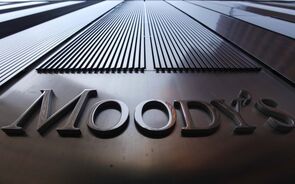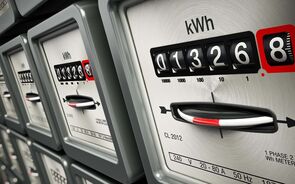Homeownership in a Bubble: The Fast Path to Poverty?
1 Mensagem
|Página 1 de 1
Homeownership in a Bubble: The Fast Path to Poverty?
Homeownership is widely promoted in the United States as both an end in itself and a good investment. The tax code has been deliberately tilted to favor homeowners over renters, through items like the mortgage interest deduction. In addition, there is a wide range of initiatives at all levels of government, and within the non-profit sector, which are intended to promote homeownership among low and moderate income families who might find it difficult or impossible to purchase a home without some assistance.
While homeownership may be indeed be desirable in normal times, it is not clear that encouraging moderate income families to buy homes at present is a good strategy. There is good reason to believe that the nation is experiencing a housing bubble very similar to the stock bubble of the late nineties. Nationwide, the rise in home prices has exceeded the overall rate of inflation by more than 30 percentage points since 1995. This sort of run-up in home prices has no precedent in the post-war period. No economist has been able to put forward a plausible explanation for such a sudden run-up in home prices, apart from a speculative bubble.
In metropolitan areas that have been especially affected by the housing bubble, the rate of price appreciation has been even greater. In the most affected areas (largely in California and the East Coast north of Washington, DC), home prices have risen in real terms by more than 70 percent over the last five years. These areas are likely to see especially large price declines when the bubble bursts.
There is evidence that the bubble has affected home prices at all segments of the market. In Los Angeles, one of the most affected bubble areas, the greatest home price appreciation over the last four years has occurred in the zip codes with mid-range home prices. Further, the increase in housing prices in zip codes with the lowest median home price is comparable to the increase in prices in zip codes with the highest median home price. This suggests that the price of many relatively low cost homes has also been inflated by the bubble.
This situation implies that the price of many of the homes that moderate income families may seek to buy at present are likely to tumble when the bubble collapses. It is entirely reasonable to believe that the price of some of these homes could fall 30 percent or more, when the housing market returns to a more sustainable path. This sort of price decline will leave many new homebuyers with negative equity and could imply enormous losses on the sale of a house. Such losses will be especially devastating for families who see homeownership as a key step in escaping poverty.
Most American families view homeownership as an important goal. In general, ownership provides a large element of security that is not available to renters. Tax laws also strongly encourage homeownership, providing tax deductions for mortgage interest and property taxes. In addition, owning a home has generally proved a sound investment, as home prices usually rise in step with the overall rate of inflation and capital gains on selling a home are tax free for middle and lower income families.
However, homeownership is not always better than renting. There can be times, when homes are selling at abnormally high prices, in which a home purchase will virtually guarantee a loss to homebuyers. In this case, the conventional wisdom – that buying a home is solid investment – may not hold true, just as it was not true that stocks were the best long-run investment for retirement savings, when the stock market was hitting its bubble peaks of 1998-2000.
With home prices nationwide having outpaced the overall inflation rate by more than thirty percentage points since 1995, it is likely that the housing market is now in a housing bubble similar to the recent stock bubble. While individuals who sell before the bubble deflates will do very well, families who buy their first home at bubble-inflated prices are likely to experience substantial losses. In many cases, especially where homes have been bought with very low down payments, the losses could be several times the size of the homeowner’s equity.
For all but the richest families, a home is the family's most important asset, and a large loss on its sale will be painful. However, for moderate income families struggling to escape poverty, bubble related losses on the sale of a home could prove devastating. In many cases, these families will be far better off delaying home purchases until after the real estate bubble has deflated.
By: Dean Baker and Simone Baribeau
While homeownership may be indeed be desirable in normal times, it is not clear that encouraging moderate income families to buy homes at present is a good strategy. There is good reason to believe that the nation is experiencing a housing bubble very similar to the stock bubble of the late nineties. Nationwide, the rise in home prices has exceeded the overall rate of inflation by more than 30 percentage points since 1995. This sort of run-up in home prices has no precedent in the post-war period. No economist has been able to put forward a plausible explanation for such a sudden run-up in home prices, apart from a speculative bubble.
In metropolitan areas that have been especially affected by the housing bubble, the rate of price appreciation has been even greater. In the most affected areas (largely in California and the East Coast north of Washington, DC), home prices have risen in real terms by more than 70 percent over the last five years. These areas are likely to see especially large price declines when the bubble bursts.
There is evidence that the bubble has affected home prices at all segments of the market. In Los Angeles, one of the most affected bubble areas, the greatest home price appreciation over the last four years has occurred in the zip codes with mid-range home prices. Further, the increase in housing prices in zip codes with the lowest median home price is comparable to the increase in prices in zip codes with the highest median home price. This suggests that the price of many relatively low cost homes has also been inflated by the bubble.
This situation implies that the price of many of the homes that moderate income families may seek to buy at present are likely to tumble when the bubble collapses. It is entirely reasonable to believe that the price of some of these homes could fall 30 percent or more, when the housing market returns to a more sustainable path. This sort of price decline will leave many new homebuyers with negative equity and could imply enormous losses on the sale of a house. Such losses will be especially devastating for families who see homeownership as a key step in escaping poverty.
Most American families view homeownership as an important goal. In general, ownership provides a large element of security that is not available to renters. Tax laws also strongly encourage homeownership, providing tax deductions for mortgage interest and property taxes. In addition, owning a home has generally proved a sound investment, as home prices usually rise in step with the overall rate of inflation and capital gains on selling a home are tax free for middle and lower income families.
However, homeownership is not always better than renting. There can be times, when homes are selling at abnormally high prices, in which a home purchase will virtually guarantee a loss to homebuyers. In this case, the conventional wisdom – that buying a home is solid investment – may not hold true, just as it was not true that stocks were the best long-run investment for retirement savings, when the stock market was hitting its bubble peaks of 1998-2000.
With home prices nationwide having outpaced the overall inflation rate by more than thirty percentage points since 1995, it is likely that the housing market is now in a housing bubble similar to the recent stock bubble. While individuals who sell before the bubble deflates will do very well, families who buy their first home at bubble-inflated prices are likely to experience substantial losses. In many cases, especially where homes have been bought with very low down payments, the losses could be several times the size of the homeowner’s equity.
For all but the richest families, a home is the family's most important asset, and a large loss on its sale will be painful. However, for moderate income families struggling to escape poverty, bubble related losses on the sale of a home could prove devastating. In many cases, these families will be far better off delaying home purchases until after the real estate bubble has deflated.
By: Dean Baker and Simone Baribeau
Surfer
1 Mensagem
|Página 1 de 1
Quem está ligado:
Utilizadores a ver este Fórum: Bing [Bot], cali010201, Google Adsense [Bot], m-m, navaldoc, smog63 e 220 visitantes


